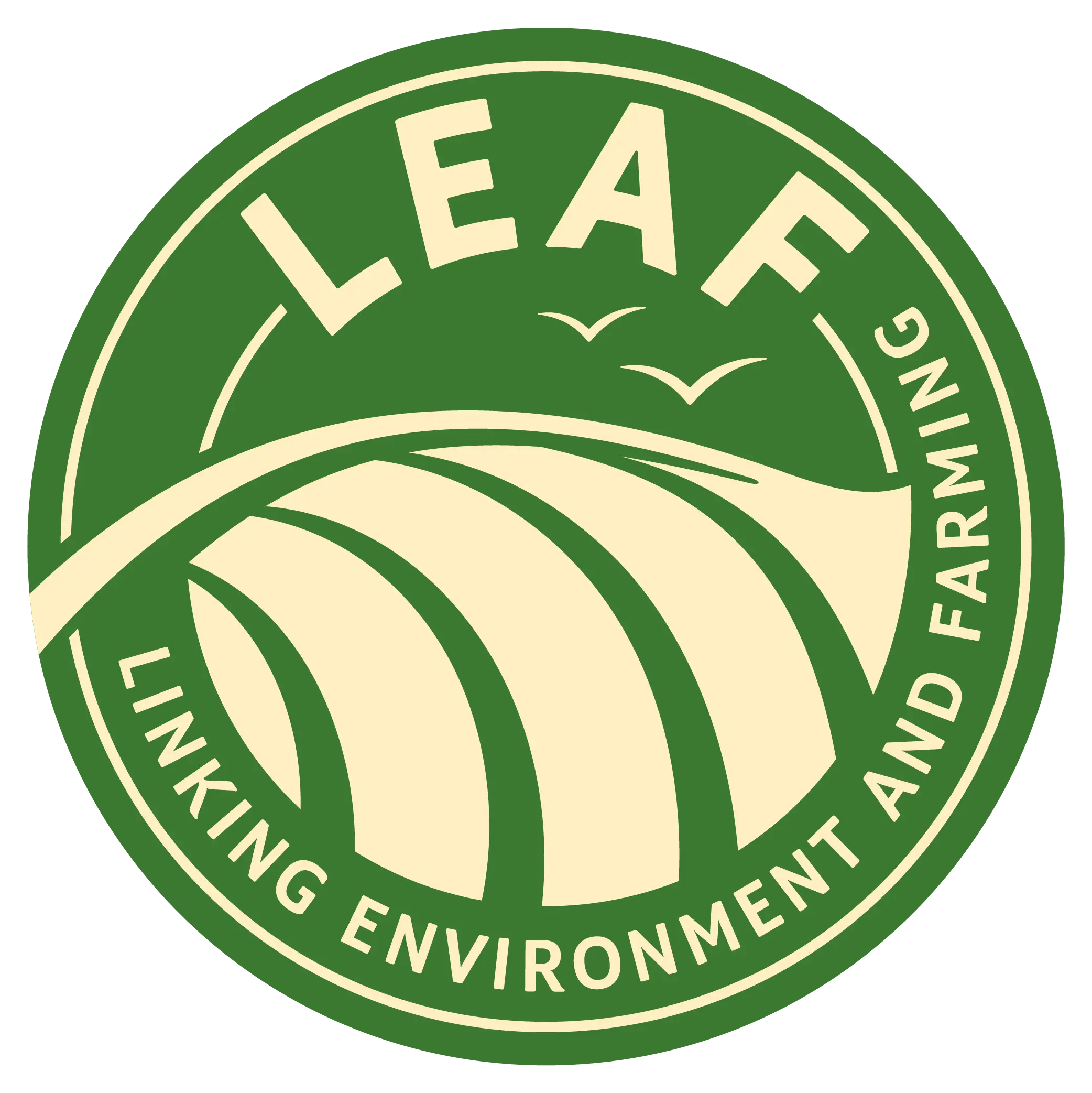- About Integrated Farm Management
- Our LEAF Network of Demonstration Farms & Innovation Centres
- Resources
- LEAF Sustainable Farming Review
- LEAF Endorsed Advisors & Consultants
- Our Projects & Partnerships
- Nature Based Solutions to Climate Change
- Beacons of Excellence
- Resilient & Ready
- Accelerating & Demonstrating the Journey to Net-Zero
Our Projects & Partnerships
Beacons of Excellence
The Beacons of Excellence programme looks to develop peer-to-peer learning and explore the benefits of regenerative agriculture and agroecology. Building on LEAF’s legacy, it will take our work to another level of knowledge generation and exchange. The first year of this programme was kindly funded by the Ashden Trust.
Learn more
Nature Based Solutions to Climate Change
Supported by The Linder Foundation, LEAF’s ‘Nature Based Solutions to Climate Change’ project is assisting with the work of 10 farmers who are using nature to mitigate climate change and build resilience on their farms.
Learn more
Resilient & Ready
LEAF have teamed up with global crop protection and seed company Corteva Agriscience in the search to develop new LEAF demonstration farmers as emerging leaders in sustainable farming.
Learn more
Accelerating & Demonstrating the Journey to Net-Zero
Developing five net-zero farms across the four nations and overseas to demonstrate practical knowledge and help farmers achieve the National Farmers’ Union target to be net-zero carbon by 2040.
Learn more
We are proud of our ongoing partnerships and collaborations, building connections and strengthening our impact on sustainable farming.
Exploring Agroforestry Project
Kindly funded by the Linder Foundation, this 1 year project aims to equip eight farmers with the knowledge, skills, and confidence to pursue agroforestry on their farm.
Farming for Nature programme
Farming for Nature is a long-term programme, working with British farmers within their supply chain, to support them in the move to more nature-friendly regenerative farming practices.
It builds on the commitment to reach net zero across Waitrose’s UK farms by 2035, and the entire supply chain by 2050.
NUE-Leg (Nitrogen Utilisation Efficiency Legumes) Project
The NUE-Leg project aims to help combat the dependence of grassland farming on applied nitrogen fertilisers.
Nitrogen Efficient Plants for Climate Smart Arable Cropping Systems (NCS)
NCS is a four-year, ground-breaking industry-led research project to support farmers in reducing agricultural emissions by increasing pulse cropping in arable rotations and substituting 50% of imported soya meal used in feed with more climate-friendly home-grown pulses and legumes.
Jordans Farm Partnership
The Jordans Farm Partnership is an innovative partnership between LEAF, The Wildlife Trusts, Jordans and The Prince’s Countryside Fund to promote sustainable farming practice and address rural development issues.
Vitacress Farm Excellence
Vitacress Farm Excellence with LEAF Marque certification is an outcomes-based approach to measuring environmental improvements through ecological appraisals and surveys, individually tailored conservation management plans and bespoke LEAF Sustainable Farming Review Reporting with KPIs and action plans for continuous improvement.
Hampshire & Isle of Wight Wildlife Trust (HIWWT) is proud to partner with Vitacress on the Farm Excellence programme in line with their Wilder strategy to promote sustainable farming and nature’s recovery. Arcadian Ecology and Consulting is a wholly owned subsidiary of HIWWT who have worked with Vitacress Farm Excellence to provide professional ecological and farm advice.
We also work with a range of partners across Europe, in several ground-breaking, collaborative and transformative projects.
SHOWCASE
This project is focused on SHOWCASing synergies between agriculture, biodiversity and Ecosystem services to help farmers capitalising on native biodiversity (SHOWCASE) and is dedicated to the integration of biodiversity into farming practices. The project aims to deliver new insight and innovative tools facilitating the agricultural sector’s transition towards more sustainable farming, and thus help meet wider societal needs.
IPMWORKS
IPMWORKS is a 4‑year horizon 2020 project that aims to promote the adoption of Integrated Pest Management (IPM) strategies through an EU-wide network of farmers. The IPM Networks consist of 5 existing national farm demo networks and 24 new hubs of demo farms. These networks will facilitate peer-to-peer knowledge sharing at a national and EU-level and demonstrate to farmers the tangible economic and ecological benefits of adopting IPM strategies.
LEAF play a key role in the monitoring and evaluation of demonstration activities to support farmers in learning about the technical and economic effectiveness of the demonstrated strategies and to help to motivate farmers to apply these strategies on their own farms. We also support the development and building of IPM Networks, dissemination, communication and training and network sustainability. To learn more about the project, visit the website and publications webpage.
SEAMS
SEAMS (Sustainability in Education and Agriculture using Mixtures) is a four-year project funded by the Esmée Fairbairn Foundation, and coordinated by the James Hutton Institute. The project aims to develop, promote and implement crop species mixtures as a sustainable crop production system for Scotland and a resource for knowledge exchange on food production, agricultural ecology and environmental sustainability to a wider audience including school groups.
